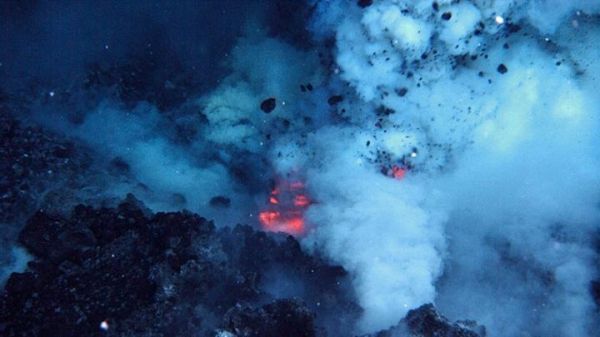Volcanic eruptions deep in our oceans are capable of extremely powerful releases of energy, at a rate high enough to power the whole of the United States, according to research published today.
Eruptions from deep-sea volcanoes were long-thought to be relatively uninteresting compared with those on land. While terrestrial volcanoes often produce spectacular eruptions, dispersing volcanic ash into the environment, it was thought that deep marine eruptions only produced slow moving lava flows.
But data gathered by remotely operated vehicles deep in the North East Pacific and analysed by scientists at the University of Leeds, has revealed a link between the way ash is dispersed during submarine eruptions and the creation of large and powerful columns of heated water rising from the ocean floor, known as megaplumes.
These megaplumes contain hot chemical-rich water and act in the same way as the atmospheric plumes seen from land-based volcanoes, spreading first upwards and then outwards, carrying volcanic ash with them. The size of megaplumes is immense, with the volumes of water equivalent to forty million Olympic-sized swimming pools. They have been detected above various submarine volcanoes but their origin has remained unknown. The results of this new research show that they form rapidly during the eruption of lava.
Read more at University of Leeds
Image: West Mato Volcano erupting in 2009. Image courtesy of the National Oceanic and Atmospheric Administration (Credit: Image courtesy of the National Oceanic and Atmospheric Administration)


